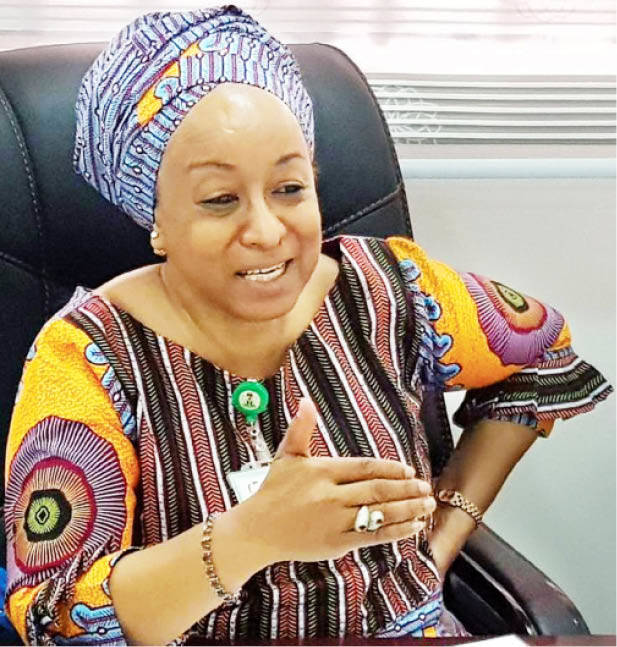Employers must follow due process before sacking workers-Mrs. Oyinkan Olasanoye

Comrade Olasanoye, National President, Association of Senior Staff of Banks, Insurance and Financial Institutions, (ASSBIFI) in this interview with Ganiyu Obaaro, said due process must be followed before any worker is sacked by employee. Excepts
Could you please tell us about yourself?
I am a unionist to the core. I was born in the middle 60’s. I am from Owo, Ondo State. I am a mother and devoted Christian. I went to Government Primary School, Owo, in 1971; St. Cathering Anglican Girls’ Grammar school, Owo; later, I proceed to the Federal Polytechnic, Ado-Ekiti; also, Lagos State University (LASU).
I have Masters in Financial Management; Industrial Relations and Labour Practice; and I have attended several training programmes, both within and outside the country.
I have been working with Royal Exchange since 1993. Royal Exchange came to Nigeria in 19921, the oldest insurance company in Nigeria. Before I came on board, which is where I am on sabbatical?
I run one of the biggest branches, which is the Ikeja branch, as Senior Manager with Royal Exchange; I became the acting unit president of Royal Exchange in 2002, I became the authentic president in 2004.
I came on line to be an executive of ASIBIFFI from 2007; I have been the Deputy President since 2010.
Because we have succession plans in our constitution, I mean, we rotate the presidency between the insurance and the banking sectors that is how we have been rotating it after six years. I believe unionism is a spiritual assignment.
Coming from the insurance sector, how would you describe the mass sack and all other issues affecting the sector?
Talking about the Insurance sector, what I will talk about in the sector is the same I will equally talk about the banking sector.
With the current situation of the country, you know, in every economy, the government is the highest spender; and in view of the situation we are in currently, the government is not spending much the way any it should be doing.
Before now, the ministries, parastatals, organizations have their own budgets.
So, you will see parastatals like NNPC, Nigerian Army, Custom and others have their own resources, and they could easily do insurance and do other spendings, but they could save money; and these were really helping the liquidity of the sectors.
But, now, with the Treasury Single Account, TSA, no big parastatal can really do insurance, save money. So, it is not about the insurance sector alone, but it is about the whole financial sector of the economy.
Inasmuch as, we have liquidity problem, the government is not spending, the parastatals’ allowance and money are being warehoused, and the recession is really affecting everybody.
How would you describe the ongoing mass sack in the financial sub-sector, particularly in banks and insurance companies?
Thank you very much. We have been having issues on improving collective bargaining. The one we have using currently is outdated.
Ideally, we bargain on the agreement, which we review every two years, one of the things we are able to do because the employers’ secretariat cannot be active, is that, we are ready to negotiate afresh. But employers no longer have functional and active secretariat there to work with.
So, what we have done so far is that we have started having negotiations on each bank and on each insurance company. We now build individual agreement on it, until we are able to have the compressive one for the sectors. We are working on the Federal Ministry of Labour, we keep writing them.
If you want to give somebody target, let it be on their retail sales, but, unfortunately, in Nigeria, there is no middle again, either you are rich or poor, so, let it be to meet both the poor and the rich at least in savings, currents and in fixed deposit. But because of the situation on the ground, they keep on giving targets.
The only thing we can do as an association is that, anybody that is being laid off that has not committed any offence, we will make sure that the retrenchment , re-engineering or whatever names is being called, followed due process; and that that is what we have been doing.
Some foreign firms operate with impunity in terms of casualisation of workers in workplaces? What are you doing to eradicate it?
The difference between a casual staff and the full time staff with condition is that part of the conditions are salary, the remuneration, safety at workplace.
We have enough laws in Nigeria, safety at workplace, factory acts, employee compensation, we have so many of them; the Labour Act we are using as at today is outdated, we have tried sometimes to sponsor bill on upgrading of the Labour Acts, but as at now, nothing seriously have been done about it.
For me, I personally believe that, why we have not been able to achieve the achievement of this upgrading of our Act, is this: in every other country of the world, we have tripartite system, the employer, the employee and government, the government becomes the regulator, the supervising authority over the employment, but in Nigeria, we have a unilateral system, employer and the government are fused together as one.
With due respect, there is no bank or any financial institution in Nigeria that you will trace the masquerade that you will not trace it to the Executive and the Legislative body of the country. So, it has been very difficult to get a new labour Law in place.
What is your relationship with the Ministry of Labour and Job Creation?
Now, coming back to casualisation, we have done something with the Ministry of Labour. We insisted that every organization that is providing labour, outsourcing and casualisation should be registered, and that there should be a collective agreement, the collective bargain on how they implement the condition of service of these contract workers.
I know they have been registered, I know they have put the collective agreement in place, but because majority of these organizations do not want this contract workers to know their rights, they will refuse them from being unionized.







